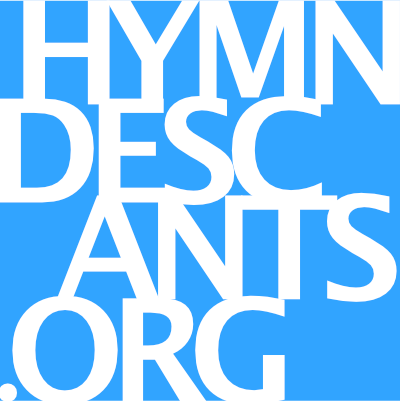Descant to the hymn tune GARDINER, also published as GERMANY. Free score with harmonized descant. || Audio: intro (four bars, ad lib) | hymnal verse | free harmonization (Wm. Gardiner, 1815) | organ bridge (ad lib) | descant and harmonization
Free score.
1 hymnal (William Gardiner)
Where cross the crowded ways of life,
where sound the cries of race and clan,
above the noise of selfish strife,
we hear thy voice, O Son of Man
3. solo or section (hymnal)
The cup of water given for thee
still holds the freshness of thy grace;
yet long these multitudes to see
the true compassion of thy face.
5 descant
till all the world shall learn thy love,
and follow where thy feet have trod;
till glorious from thy heaven above,
shall come the city of our God.
The hymn text
The hymn Where cross the crowded ways of life was written at the turn of the 20th century by poet Frank Mason North (1850-1935). Active in urban ministry, North's hymn is a reverse analogy to William Blake's And did those feet in ancient time; whereas Blake saw the coal-scarred landscape of England replaced at Christ's coming by a green and pleasant land, North appeals to the 'Master, from the mountainside' to transfigure the chaos, din, and desperation of the city into a new Jerusalem, sent from above. While waiting in expectation, however, the church begins the transformation with quiet, persistent individual acts of Christ-like selflessness. North understood well the difficulty of changing the tenacious dynamics of "race and clan" with transformative one-to-one acts of grace, such as "the cup of water given for Thee." Final transformation descends as the heavenly city; for now, the Church must be the next best thing. First published in a missionary journal, The Christian City in 1903, it appeared two years later in the Methodist Hymnal; wide acceptance followed.
The tune
By profession an industrialist from the English midlands, William Gardiner passionately pursued an avocation in music which resulted in his 1815 opus, Sacred Melodies, a collection of arrangements derived from works of Beethoven, Mozart and Haydn. He originally attributed this tune to a theme by Beethoven, but as Gardiner himself noted in his memoir Music and Friends (1838), the melody "is somewhere in the works of Beethoven, but I cannot now parcel it out" (vol. 2, p. 843). Of the setting's distinctive bass, he wrote, "the bass, though learned, is smooth and easy" ( op. cit., emphasis added). This work, then, is Gardiner's own, and over time hymnals have come to acknowledge this. The tune is known by several names: the frequently-cited GERMANY, as well as WALTON, MELCHISIDEC, and the eponymous GARDINER. The original was scored for strings and solo voice with a Romantic-period paraphrase of the 23rd Psalm, and was marked Pastorale. The pairing with the urbane Where cross the crowded ways of life appeared in the 1905 Methodist Hymnal, besting (by one year) the English Hymnal, a book otherwise notable for such timeless pairings .
Sources
- The United Methodist Church Discipleship Ministries
- hymnstudiesblog
- The Hymnary
- Sacred Melodies, Vol. II (scan of original, Google Books)
- Music and Friends, Vol. II (Google Books, cf. p842-843)
Where cross the crowded ways of life
Free harmonization*
Organ bridge
Harmonized descant
*adapt. fr. William Gardiner, 1815
Descant text:
till all the world shall learn thy love,
and follow where thy feet have trod;
till glorious from thy heaven above
shall come the city of our God.
– Hymnal 1982

